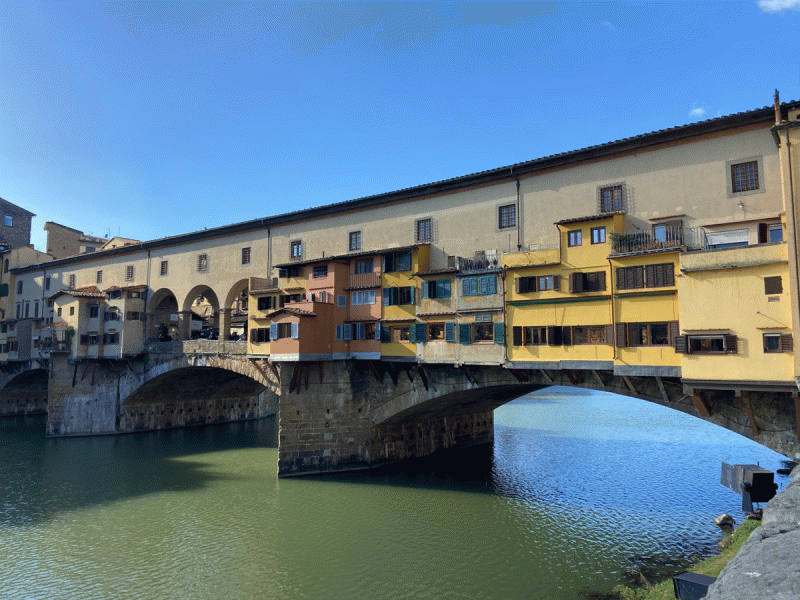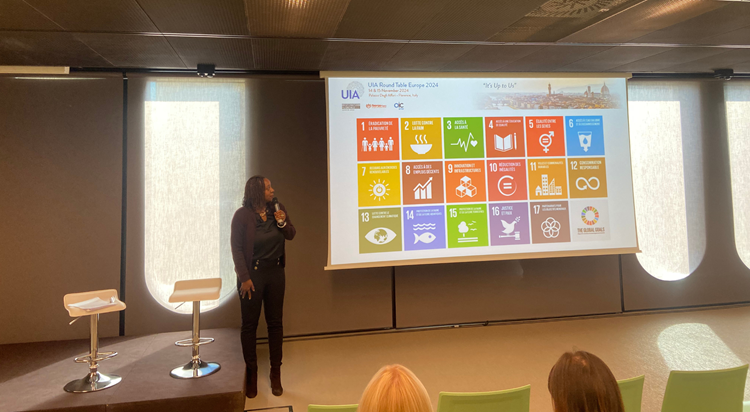From Trust to Technology: Shaping the Future at the UIA Round Table Europe 2024
Magazine:
4th Dec, 2024
Category:
Image:

Body:
The UIA Round Table Europe 2024 brought together association leaders, academics and professionals in Florence for a two-day programme addressing the most pressing challenges and opportunities facing the global association landscape. Organised by the Union of International Associations (UIA), the event provided a platform for dialogue on key issues such as trust in international cooperation, sustainability and the role of technology in transforming organisational practices.
Set against the backdrop of Florence, long celebrated for its historic contributions to art, science and collaborative thinking, the discussions provided a unique lens through which to examine the role of associations in shaping the future. As the birthplace of Leonardo da Vinci, Florence symbolises the true spirit of innovation required to navigate an increasingly complex world, and associations were called to innovate and lead with both imagination and purpose.
Opening remarks by UIA President Cyril Ritchie and Secretary General Jacques de Mevius set the tone for the event. Ritchie reflected on the outcome of the recent UN World Summit on the Future, acknowledging its significance and shortcomings in meeting associations' expectations. His words further underscored a central theme of the roundtable: the importance of associations defining their own metrics for success and adapting to global challenges.
Dr Daniel Laqua, Associate Professor of European History, led a session examining the historical evolution of trust and its central role in managing relationships with global institutions. Participants shared experiences and strategies, pointing to the importance of transparency, accountability and consistent engagement in building and sustaining trust. The session made clear that trust serves as a foundation for collaboration and a valuable asset that associations must actively develop to remain effective.
Innovation and how associations can use technology to strengthen their work were recurring themes throughout the event. Stefano Berretti, Associate Professor at the University of Florence, explored the transformative potential of artificial intelligence (AI). He outlined how AI can improve storytelling and operational efficiency, while raising ethical questions about its implementation. His presentation sparked a broader reflection on how associations can thoughtfully adopt AI, not as a replacement for human creativity, but as a tool to enhance their work. Ryan Brubaker, Web and Database Developer at UIA, presented the features of the Global Civil Society Database. This tool was presented as an essential resource for associations seeking to identify new partners, access resources, and achieve their strategic goals. The database was an example of the practical application of technology, demonstrating how data-driven tools can enable organisations to expand their reach and achieve greater impact.

Discussions also turned to sustainability, with several sessions highlighting the importance of engaging communities in meaningful ways. Martina Fondi of Treedom presented Roots of Renewal, an initiative that shows how reforestation projects can align with the goals of associations while fostering local partnerships. Fondi's insights echoed anthropologist Diye Ndiaye, who chaired a session on achieving the UN's Sustainable Development Goals. Ndiaye was keen to emphasise the need for organisations to look beyond external funding, and instead engage communities as active participants to ensure long-term impact. These presentations demonstrated that sustainability is not just a responsibility but an opportunity for associations to build deeper, more authentic connections with the people and environments they serve.
A panel of Italian knowledge leaders, including Tobia Salvadori, Director of the Convention Bureau Italia and Sara Lucatello, Vice-President of the European Astronomical Society, who discussed the value of engaging young professionals early in their careers, drew attention to the importance of developing future leaders. Panellists insisted that building confidence and resilience in young talent benefits individuals and strengthens associations' long-term capacity to innovate and adapt.
The UIA Europe 2024 Roundtable concluded with a clear message: associations can lead transformative change by building trust, embracing innovation and committing to sustainability. The city of Florence served as a fitting backdrop for these reflections, both for its historical significance and the lessons it offers about its past in collaboration, innovation and creativity. Associations today face unprecedented challenges, but they also have access to tools and partnerships that can have a meaningful impact if they are willing to imagine boldly and act decisively.






